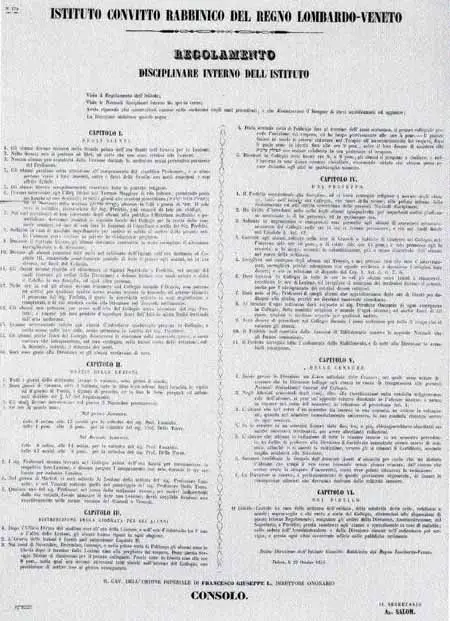Witnesses to History: The Jews of Padua
Regolamento per L'Instituto Convitto Rabbinico (Regulations of the Rabbinical Institute), Padua, 1858. The rabbinical seminary established in Padua in 1829 by I. S. Reggio was the first modern institution for training rabbis. That this took place in Italy, one of the smaller European Jewish communities, attests to the high degree of integration into modernity of the Italian Jewish community. What gives the Library's copy particular value is its inclusion of a large folio insertion (nine pages in size) of the "Internal Regulations" for students and faculty, among them:
Books or papers not related to the lesson may not be brought into the classroom.
Students are to give serious attention to the instruction of the professor, and will behave towards him, inside the school and out, with the respect and filial affection due him.
Students must attend services at the major Ashkenazi synagogue.
All students are required to eat together in the refectory at the designated times. They may not gather the fruit growing in the college orchard.
Students may not bring any visitors into the College, especially to their rooms, without written permission.
 |
The duties of the professors, Lelio Della Torre and Samuel David Luzzato, are minutely spelled out. Six hours of teaching each day of the week, and if a lesson is missed, it must be made up. The prefect may enter a student's room at any time and must "keep vigil" over the behavior of the students in the dormitory, in the classroom, and at services. He is to keep a record of student conduct noting punishments and censures but, in a nod to the traditional concept of t'shuva (repentance), if conduct improves, the notations of censure will be erased from the record.
Sources: Abraham J. Karp, From the Ends of the Earth: Judaic Treasures of the Library of Congress, (DC: Library of Congress, 1991).


